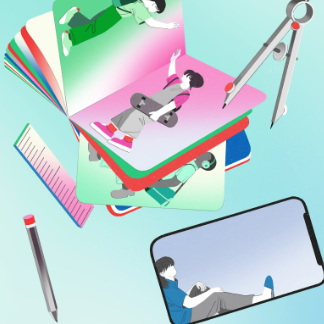By Hank Bartholomew
New York State Governor Kathy Hochul has announced a plan that would completely ban cell phone use during school hours. The plan has yet to be approved by legislators, but if successful it will be implemented at the beginning of the 2025-2026 academic year. Although schools have some discretion with regards to how the ban is carried out, the measure would affect all New York public schools, including, of course, Williamsville East.
Hochul has been a long-time advocate for measures that limit phone use in schools, arguing that the prevalence of such devices is responsible for New York students struggling to learn at prior rates. Although reverberations and aftershocks from the COVID-19 pandemic may play a partial role to blame, Hochul has been adamant that there is a causal relationship between higher cell phone use and lower test scores. At a news conference in Albany, Hochul voiced her complaints, arguing that “We’re not developing the skills we need because kids are distracted with the cellphones,” and that it is difficult to pay attention to “the subject at hand when this is going on.”
While the logistics are still not entirely clear, Hochul’s administration has provided a few details for the plan. The plan would limit not only cell phones, but also smart watches and tablets. As part of her budget plan, Hochul has allocated $13.5 million to help schools enforce the ban, although the schools can choose how to utilize that money. The $13.5 million is part of an overall $37.4 billion Hochul proposed to provide schools with in her latest budget proposal, a 4.7% overall increase over the previous year.
The plan is part of an overall movement throughout the country to limit smartphone usage in schools. The trend has its origins in Florida, the first state to crack down, at least in a significant manner, on phone use in schools, about a year ago. Since then, a variety of schools have followed suit, with Oklahoma, Vermont, and Kansas having imposed similar legislation. At a federal level, U.S. Senators Tom Cotton of Arkansas and Tim Kaine of Virginia proposed legislation demanding a study on the effects of cellphone use on students’ academic performance and mental health. It’s a bipartisan effort that appears to be continuing to gain support.
Critics of the phone ban proposal raise a variety of concerns, chief among them is the argument that a phone ban would be incredibly troublesome to enforce. With potentially thousands of students in every school, it would be extremely difficult to account for every single smartphone or piece of technology. Others allege that banning phones severs a crucial connection between children and family members, who may need to communicate throughout the day. Some simply contend that phones are, in fact, not the problem; the COVID-19 pandemic and new methods of teaching are, in the eyes of some, the main culprits for poorer test scores.
The ban, even if successful, wouldn’t take effect until fall 2025, meaning there is plenty of time for the proposal to be modified or even scrapped. If it is enforced, it’s still unclear what effect it will have at East, as the methods with which a ban would be enforced would differ from school to school. Still, if implemented, Hochul’s proposal could have major effects on the student body.

